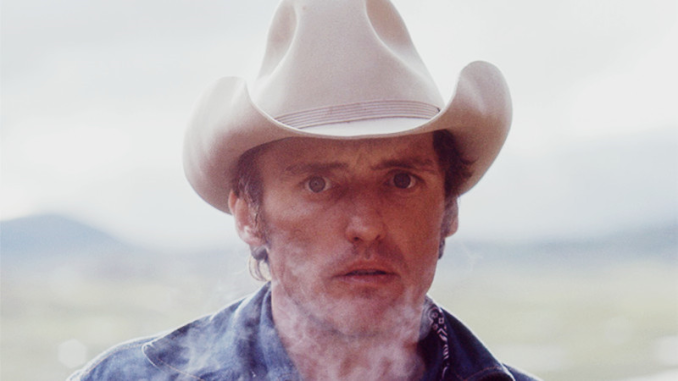
The 1970s was a turning point for the Western. While the genre was no longer the box office powerhouse it had been in previous decades, filmmakers were pushing boundaries, experimenting with style, and reinterpreting familiar tropes.
The decade saw revisionist Westerns as well as Spaghetti Westerns continuing to deliver operatic gunfights, and even genre hybrids bringing fresh ideas into play. While many classics have rightly received their due, plenty of great Westerns from the era have been overlooked. Here are ten that you might have missed.
1. Rio Lobo (1970)

Howard Hawks’ final film, Rio Lobo, often gets overshadowed by his earlier classics like Red River (1948) and Rio Bravo (1959), but it’s still a solid Western with plenty to offer. Starring John Wayne in one of his late-career roles, the film is essentially a reworking of Rio Bravo, with Wayne once again playing a tough, no-nonsense hero (what else?) leading a ragtag group against corrupt forces.
The story follows Cord McNally (Wayne), a former Union officer hunting down traitors who betrayed his regiment during the Civil War. This search leads him to the town of Rio Lobo, where he teams up with a young gunslinger and a vengeful woman to take on a ruthless sheriff and his cronies.
While Rio Lobo doesn’t break new ground, it’s an enjoyable old-school Western with romping action sequences and a charismatic performance from Wayne. Hawks’ direction, even in his final outing, after a quite staggering career, is confident and assured, delivering a film that, while formulaic, remains a satisfying genre entry. It sometimes feels like a latter-day Clint Eastwood directorial piece, not necessarily his finest work, and yet utterly consistent and replayable.
2. Zabriskie Point (1970)
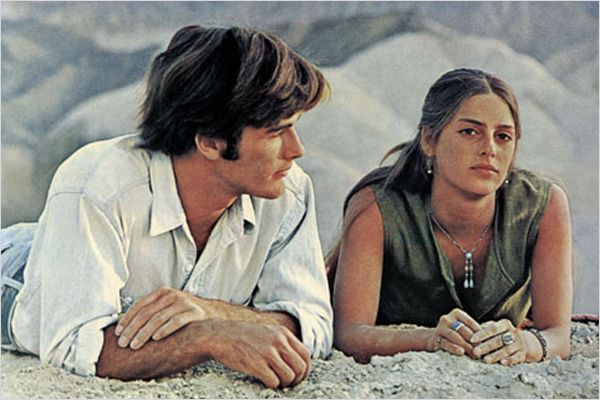
While perhaps not a Western in the traditional sense, Zabriskie Point captures the spirit of the genre in a radical, counter-cultural fashion. Michelangelo Antonioni’s take on America is a visually stunning meditation on rebellion, capitalism, and the open landscape of the West.
The film follows a young man who, after a student protest turns violent, steals a small plane and flies out into the desert, where he meets a free-spirited woman. Their brief romance unfolds against the vast emptiness of Death Valley and the exoticism of Antonioni’s style is almost inevitably accompanied by dreamlike visuals.
For those expecting a conventional narrative, Zabriskie Point can be frustrating—it’s more about mood, imagery, and political subtext than storytelling. And indeed, there are many critics who have repeatedly piled in on the film over the years, but its haunting final sequence, featuring a slow-motion explosion set to Pink Floyd’s music, is one of the most striking endings in any film, let alone a Western-adjacent one. Zabriskie Point isn’t for everyone, but like it or not, it remains a film that demands a conversation more than fifty years on.
3. El Topo (1970)

Alejandro Jodorowsky’s El Topo is about as far from your average Western as you can possibly get. A surreal, mystic journey through the desert, the film blends Spaghetti Western tropes with philosophy, religious allegory, and a heavy dose of psychedelia. An Acid-Western, if you like.
Jodorowsky himself plays the titular gunslinger, who embarks on a spiritual quest, battling a series of master gunfighters before undergoing a profound transformation. The film is packed with bizarre, violent, and often disturbing imagery, but beneath its madness is a deeply philosophical core.
A key film in the ‘midnight movie’ movement, El Topo, like much of Jodorowsky’s work, has become a cult sensation, drawing praise from figures like John Lennon. Its influence can be felt in everything from Mad Max to The Mandalorian; yet it remains detached from mainstream cinema. This might well be understandable, but El Topo (despite its numerous controversies) is arguably Jodorowsky’s most accessible film, if only for its obvious Western influences.
4. The Last Movie (1971)
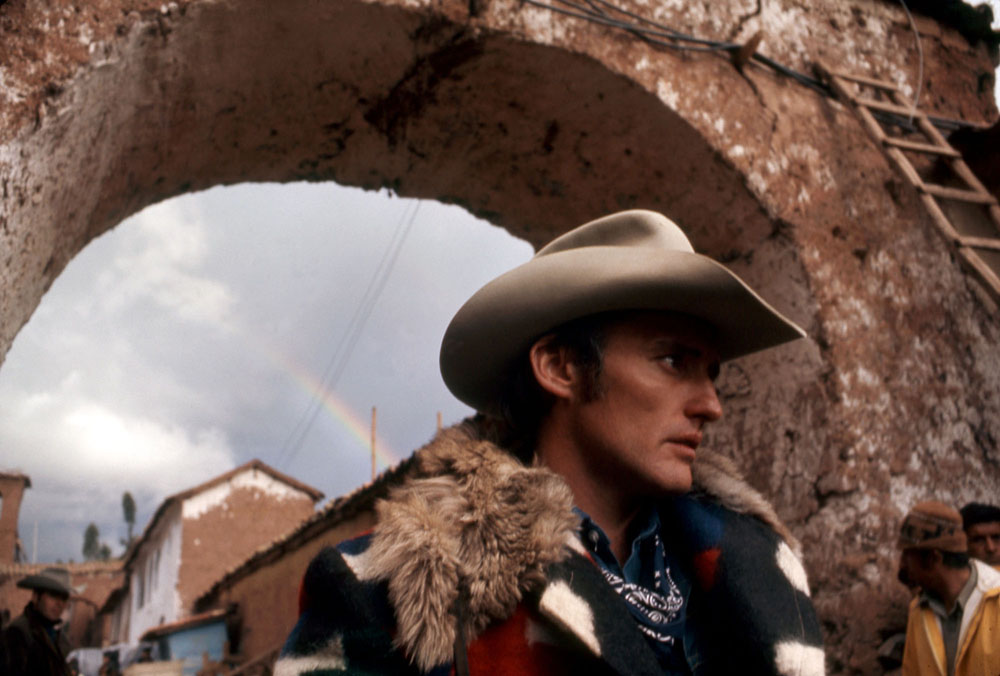
The more well-known Easy Rider (1969) might itself be considered a reinterpretation of the Western, but too few people dipped their toes into Dennis Hopper’s cinematic return, 1971’s The Last Movie, a film that pushed the boundaries of cinema and ultimately alienated audiences and critics alike.
A meta-Western about filmmaking itself, it tells the story of a stuntman (Hopper) working on a Western in Peru, who stays behind after production wraps and becomes entangled with the locals in what becomes an increasingly bizarre and voodoo inflicted piece.
The Last Movie critiques Hollywood’s myth-making, upending potential genre cliches completely while blurring the lines between fiction and reality. Its unconventional structure and experimental style might well make it a challenging watch, but The Last Movie is a fascinating relic of 70s counterculture, offering a raw, hallucinatory take on a field of cinema that surprised its audiences at the time, and continues to be divisive today.
5. Red Sun (1971)

One of the strangest yet most entertaining Westerns of the decade, Red Sun is a genre mash-up that brings together samurai and cowboys in a way that shouldn’t work, but somehow does. Directed by Terence Young, who also directed three Bond films in the 60’s, the film stars Charles Bronson, Alain Delon, and Toshiro Mifune—without doubt one of the most impressive international casts ever assembled for a Western.
Bronson plays an outlaw, Link, who is double-crossed by his partner Gauche (Delon) during a train robbery. In the process, a priceless samurai sword is stolen, leading Mifune’s Kuroda to join forces with Bronson in pursuit of the thief. What follows is a madcap and truly unique East-meets-West revenge tale filled with blistering action, betrayal and a huge slice of dry humour; a tone that was perhaps the reason it was dismissed too easily on its release. Red Sun is self-aware as well as being a bombastic alternate Western and deserves a moment in the sun. Ahem.
6. Bad Company (1972)
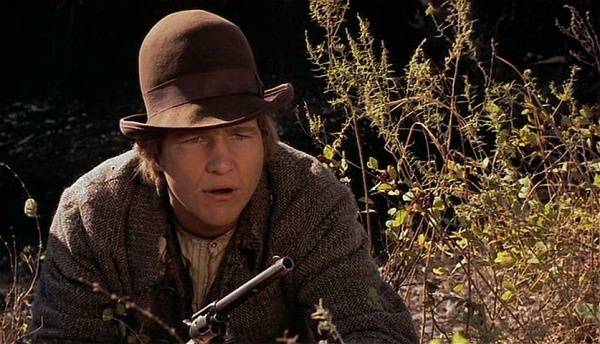
Bad Company takes the traditional outlaw Western and turns it into something more cynical, offbeat, and darkly humorous. A forgotten gem of the era, it was directed by Robert Benton (who went on to helm the award-winning Kramer vs. Kramer in 1979) and stars a young Jeff Bridges in one of his first major roles.
Set during the American Civil War, the film follows Drew (Barry Brown), a privileged young man who dodges the draft and heads west, only to fall in with a gang of ragtag outlaws led by Bridges’ charismatic yet morally questionable Jake.
Bad Company was one of the first Westerns to really embrace the disillusionment of the era but has a through line tackling the notion of the grass not necessarily always being greener. Drew’s morals and meaning are questioned as he embraces what he initially sees as freedom, but it swiftly comes at a price. Bad Company is a much more raw and ironic film than it’s perhaps given credit for, Bridges is, as always, effortlessly watchable, but it’s Brown’s naïve protagonist who gives the film its emotional weight.
7. The Grand Duel (1972)

Only recently released on Blu-Ray, The Grand Duel is an absolute must-see. Directed by Giancarlo Santi, the film stars Lee Van Cleef in full-on gunslinger mode, delivering one of his coolest and most commanding performances; dare I say it, up there with his iconic roles in the Dollars Trilogy (1964-1966).
He plays Sheriff Clayton, a world-weary lawman tasked with protecting a young fugitive accused of murder. As the pair go on the run, they’re pursued by three ruthless brothers, leading to a series of violent and expertly staged shootouts, and the whole thing is gripping from start to finish.
The Grand Duel attempts to recreate the myth of the previous decade in the sense that it’s an homage to the Spaghetti Westerns that came before it, but Santi’s film easily stands on its own feet and isn’t overshadowed by its predecessors in any way or fashion.
Ever the fan of under-seen and unknown Westerns, Quentin Tarantino used Luis Bacalov’s score as part of his soundtrack for Kill Bill Volume 1 (2003), proving to many that The Grand Duel deserves to be seen on a much wider scale.
8. A Reason to Live, A Reason to Die (1972)

A Western heist film with an all-star cast and an explosive finale, A Reason to Live, A Reason to Die (also known as Massacre at Fort Holman) is a Spaghetti Western that some claim is simply a combination of The Dirty Dozen (1968) and Where Eagles Dare (1968). But is that such a crime?
James Coburn stars as Colonel Pembroke, a disgraced Union officer who assembles a team of criminals to help him retake a fortress that was stolen from him by a ruthless Confederate commander (Telly Savalas, having an absolute blast).
Tonino Valerii’s film may be unfairly dismissed because of its plot similarities to the films mentioned above, but it more than holds its own whilst knowing exactly what it is. A Reason to Live, A Reason to Die stays true to its Spaghetti Western roots and culminates with a spectacular finale that invites favourable comparison with Sam Peckinpah’s The Wild Bunch (1969), although claiming Valerii’s film is on the same level as Peckinpah’s would admittedly be quite a stretch.
9. Westworld (1973)
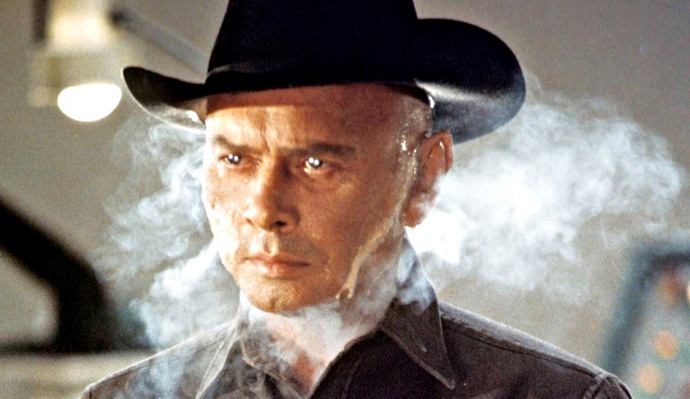
The younger generation might well be more au fait with the recent HBO Westworld television series (2016-2022), but Michael Crichton’s original 1973 directorial debut (that he also scripted) is arguably a more efficient and consistent piece of work.
While Westworld is naturally associated with science fiction, its core is a classic Western story—except this time, the gunslingers are robots, and the Old West is just a theme park for rich tourists.
The film takes place in a futuristic resort where visitors can live out their Wild West fantasies, offering interesting themes of morality, consent and humanity itself. But when the park’s AI malfunctions, chaos ensues, with Yul Brynner’s robotic Gunslinger going on an unstoppable killing spree. Sound a bit like Jurassic Park? Well Crichton wrote that too of course.
Westworld is an excellent and often underrated work, but in an era where AI is now very much among us, it’s an appropriate time to re-watch and perhaps greater appreciate Crichton’s very fine film.
10. Breakheart Pass (1975)

Part Western, part murder mystery, Breakheart Pass is an overlooked gem that mixes genre themes and ideas in a way that makes it a compelling and exciting thriller, yet with an unmistakeable Western style.
Based on Alistair MacLean’s novel, the film stars Charles Bronson in a rare detective-style role, investigating a series of deaths aboard a train heading for a remote military outpost.
Though it never reached the status of Bronson’s bigger hits like The Mechanic (1972) or Death Wish (1974), Breakheart Pass is an excellent hybrid of Western and mystery thriller, with Bronson perfectly cast in the lead role, and bizarrely makes you think of another film set on a train some twenty years later, the underrated pinnacle of the B-movie in Under Siege 2: Dark Territory (1995).
Leave a Reply